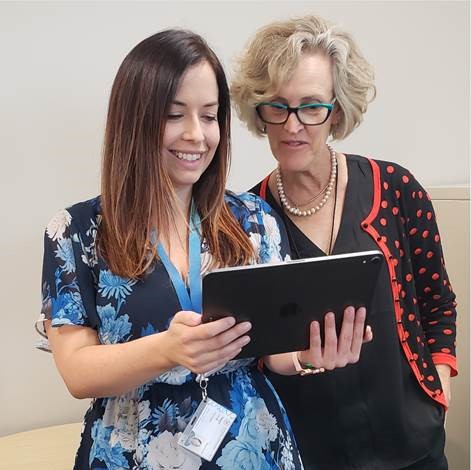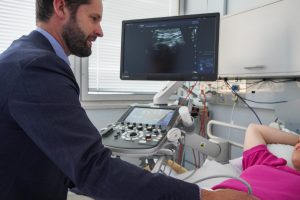Hypnosis, delivered by telehealth, could become a useful treatment option for people with inflammatory bowel disease (IBD) researchers at the Royal Adelaide Hospital (RAH) and Deakin University have discovered.
Participants were overwhelmingly satisfied with the therapy and the study paves the way for a larger trial to test its effect on health outcomes.
A growing problem globally
IBD refers to a group of conditions with the common factor being inflammation in the digestive tract, and symptoms that can severely disrupt quality of life. IBD is estimated to affect about 7 million people globally, and about 100,000 people in Australia.
Inflammation in the gut tissue can trigger abdominal pain and other bowel symptoms. Some people also experience these symptoms even while their disease is under control.
“For people with IBD, it can be really frustrating when they see their doctor and are told their scans etc look fine. Meanwhile, they could be feeling quite miserable,” said Taryn Lores, lead author and health psychologist at the RAH.
This can be a sign of a change in how the gut is functioning, and the sensitivity of the nerves.
Hypnotherapy has proven to be a useful tool in other medical settings, such as with pain management for people with cancer. It can also be an effective treatment for people with irritable bowel syndrome, but research is limited in IBD.
A digital solution
In the study, participants connected with a hypnotherapist via telehealth who facilitated the hypnotherapy sessions.
“Hypnosis is not something that’s “done to” participants – rather, it’s a process that they direct themselves under guidance,” said Ms Lores.
“It’s about becoming relaxed – less aware of the outside world and more internally focussed and open-mined to suggestions about improved health and wellbeing.”
The sessions used guided imagery, visualisations and metaphors to imagine changes in the gut. Suggestions focussed on healing tissue, calmer functioning, less inflammation, reduced sensitivity, increased comfort and more resilience.
Tick of approval
For participants, the novel therapy was met with widespread satisfaction, with 93% reporting they were ‘satisfied’ or ‘extremely satisfied with the virtual hypnotherapy.
All patients reported positive experiences with the intervention and 86% were ‘somewhat likely’ or ‘extremely likely’ to participate in it again.
“What this tells us is that people with IBD like it. If it weren’t for COVID-19, we would have facilitated the hypnotherapy face-to-face, but this study shows that even virtual delivery is acceptable,” said Ms Lores.
While pilot study didn’t focus on health outcomes as such, Ms Lores believes a larger study of this kind could have a big impact.
“What we would love to be able to do is to compare face–to–face to telehealth delivery, and even audio-guided delivery, to see what people prefer and which method has the best outcomes for health and wellbeing,” said Ms Lores.



